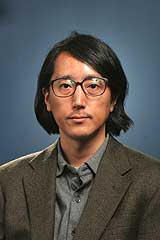Dr. Sato Publishes New Paper on Rho/Rock Signaling in Stem Cells
Dr. Noboru Sato, an Assistant Professor in the Department of Biochemistry, developed a novel method to grow human embryonic stem cells which is not only cleaner and easier to use than conventional methods of culturing hESCs but also results in hESCs whose pluripotency – the potential to differentiate into any of the specialized cells of the body such as neurons, cardiac muscles, and insulin-producing cells – is uncompromised.
In the study, Sato’s group extensively screened various types of scaffold materials in combination with Y27632, a chemical compound that blocks the Rho-Rock pathway, and found that the Matrigel coating could be replaced with “poly-D-lysine,” a chemically synthesized ECM. The major advantages of poly-D-lysine over Matrigel are that poly-D-lysine is completely animal-free, easy to handle, and its quality is consistent.
Having started his career as a physician in Japan, Sato began researching stem cell biology as a research fellow at The Rockefeller University, NY, one of the foremost research centers in the world. He accepted a faculty position in the Department of Biochemistry at UCR in 2006. He was joined in the research project by Nicole Harb of UCR and Trevor K. Archer of the National Institute of Environmental Health Sciences (NIEHS), NC.
Dr. Sato is a member of the Stem Cell Center at UCR which has over 30 faculty engaged in or entering stem cell research.
Please click here to view the UCR Newsroom Article.
Please click here to view the Press Enterprise Article.
